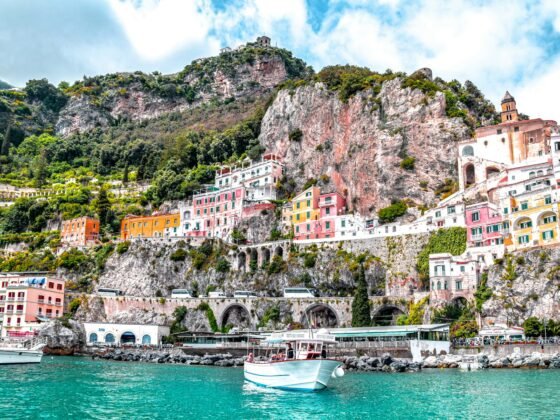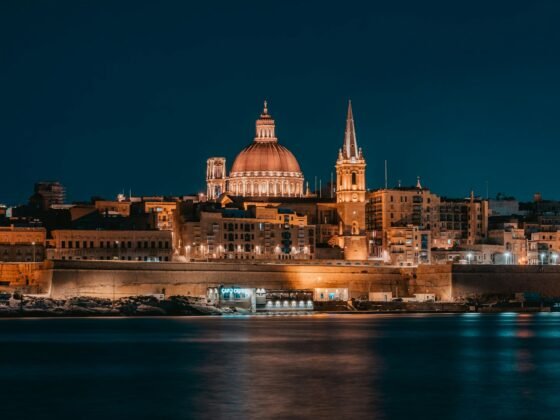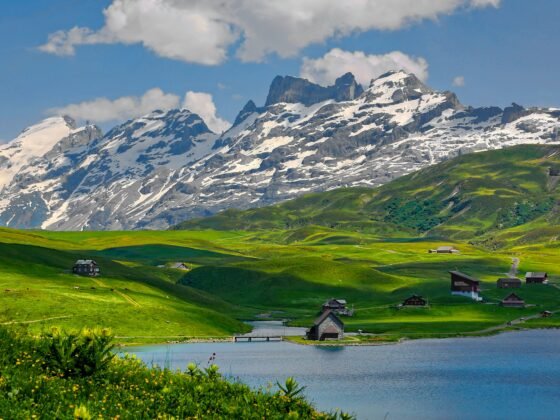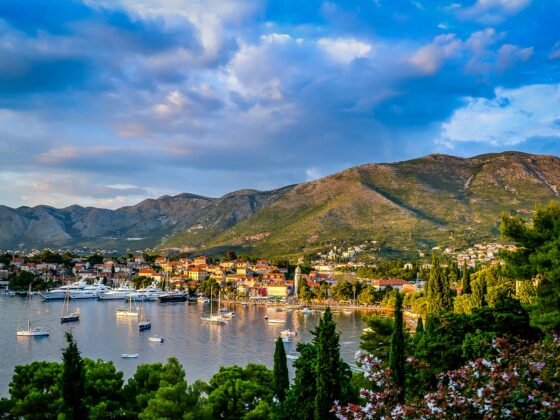Going to Europe for the first time? Well, prepare to have the most amazing trip of your life!
From the magical view of the Eiffel Tower to the spectacular architecture in the streets of London and the picturesque glacial sceneries in Iceland, Europe is a melting pot of unique cultures, languages and lifestyles.
However, if you don’t do your research or take the correct measures before traveling, your trip could turn into a complete nightmare. Europe is known to be quite expensive and obviously, things don’t work the same way there as they do in your own homeland.
Don’t worry though. Here’s some advice to help you navigate your way around the European borders and make the smartest travel choices.
#1. Make Use of the Public Transport
When in Europe, public transport is the way to go. They have a very advanced network route set up for their buses, trains, metro and the tube. And these serve as the primary modes of travel for all citizens, regardless of class, profession or wealth!
As for travelers on a budget the fact that this is the most economic method of traveling is certainly beneficial. What’s more, it’s also the fastest and most efficient way to cover all the different places you want to see.
#2. Pick Housing Away from the City Centre
Sure, it’s great to be surrounded by the hubbub of the city center, where everything touristy is easily accessible. But if you want to save costs, it’s best to avoid these popular areas.
For example, if you’re planning a trip to Madrid, Spain, The Broke Backpackers recommends that it’s best to opt for housing nearby, but a little away from all the major attractions.
Even better is if you can book an Airbnb and live as the locals do. Each region in Europe is different in terms of expenses however, so you need to do proper research before settling in.
For instance, in France, Monaco has crazy accommodation prices, but Nimes has much more affordable housing.
#3. Make Sure You Know How to Communicate
Almost anywhere you go, you’ll always benefit from knowing the local lingo. So before stepping foot into a European country, you should be well versed in some of the common phrases in their language.
This includes how to greet and thank people, ask for directions, call a taxi and other important words like “hospital”, “help” and “water”. Also, do make use of the Google translate app, as it is truly a game-changer for communicating in a different language.
#4. Stay Safe
Although Europe is quite a safe place to visit, you can never really predict where you might find danger. And the fact that you’re in a foreign land, with little knowledge of your surroundings makes you at greater risk. So, make sure you have a good local knowledge base of the area you’re visiting.
You can find the most recent safety information and advice in the Foreign & Commonwealth Office Country Advice platform. Be prepared for pickpockets in more crowded areas and take note of all the emergency helplines for each city. Remember, it always helps to stay vigilant!
#5. Travel During the Off-Season
As with all places, there’s a specific tourist season when flights are a lot more expensive. For Europe, the prime time that everyone visits are in summer and the month of August.
So, to get better deals on airway tickets, look for flights in Autumn or Spring. This will also give your bank account some relief because prices will be lower for everything during the offseason.
#6. Deal with Jet Lag Smartly
If you’re traveling to Europe from a far off country, jet lag is something you have to expect. But rather than letting it waste your first few days, you can actually take certain measures to reduce its impact.
Try to get on the local schedule as soon as you can. In fact, start before you even fly, by going to bed early the day before.
As soon as you step on the plane, reset your watch’s timing according to your destination and try to follow that schedule. And if you happen to get an overnight flight, don’t make the mistake of sleeping as soon as you arrive.
Try to stay awake until it is actually the local time for night and sleeping.
#7. Prepare to Walk Comfortably
When exploring Europe, long distances of walking are unavoidable. So you need to dress and pack accordingly. The most important item here is your walking shoes, which must be comfortable.
It also helps to travel light, and have hand luggage that is easy to carry. Don’t take unnecessary items that you can find in local markets. But make sure you carry a valid passport with you at all times, as well as some water.
#8. Use the Roads Less Taken
Of course, we all want to visit popular sites like Buckingham Palace in London. But if you have the extra time, definitely check out the other non-mainstream, yet equally beautiful sites as well.
The best way to find these gems is by asking the locals, as there’s nobody better to guide you.
This will allow you to mingle with the inhabitants of these exotic places and experience different cultures, all the while getting an authentic experience from wherever you’re visiting.
Also, another cool way to find out the most about European cultures and history is to visit all the museums.
#9. Plan the Money Matters Ahead
You might think that Europe, being an advanced region, will accept credit cards, wherever you go. However, this is not always the case and a lot of villages and towns actually only deal in cash.
So, relying solely on credit cards is very restricting. Always have a bunch of euros near you, so that you can travel and shop smoothly.
It’s also wise to let your bank and credit card companies know beforehand about your trip, or your account might be frozen due to the unusual expenses.
Final Thoughts
Everybody needs to visit Europe, at least once in their lives. And why not? You should definitely take advantage of the fact that you can visit multiple countries with the least amount of hassle.
Just make sure you plan certain things like travel and accommodation ahead, and you’re good to go. As for things like food, and sites to visit – knowing what to do will make your trip more organized. But it’s always more fun to go with the flow and blend in with the locals.
This way you’ll get the truest taste of Europe, without missing out on any of the magic!












